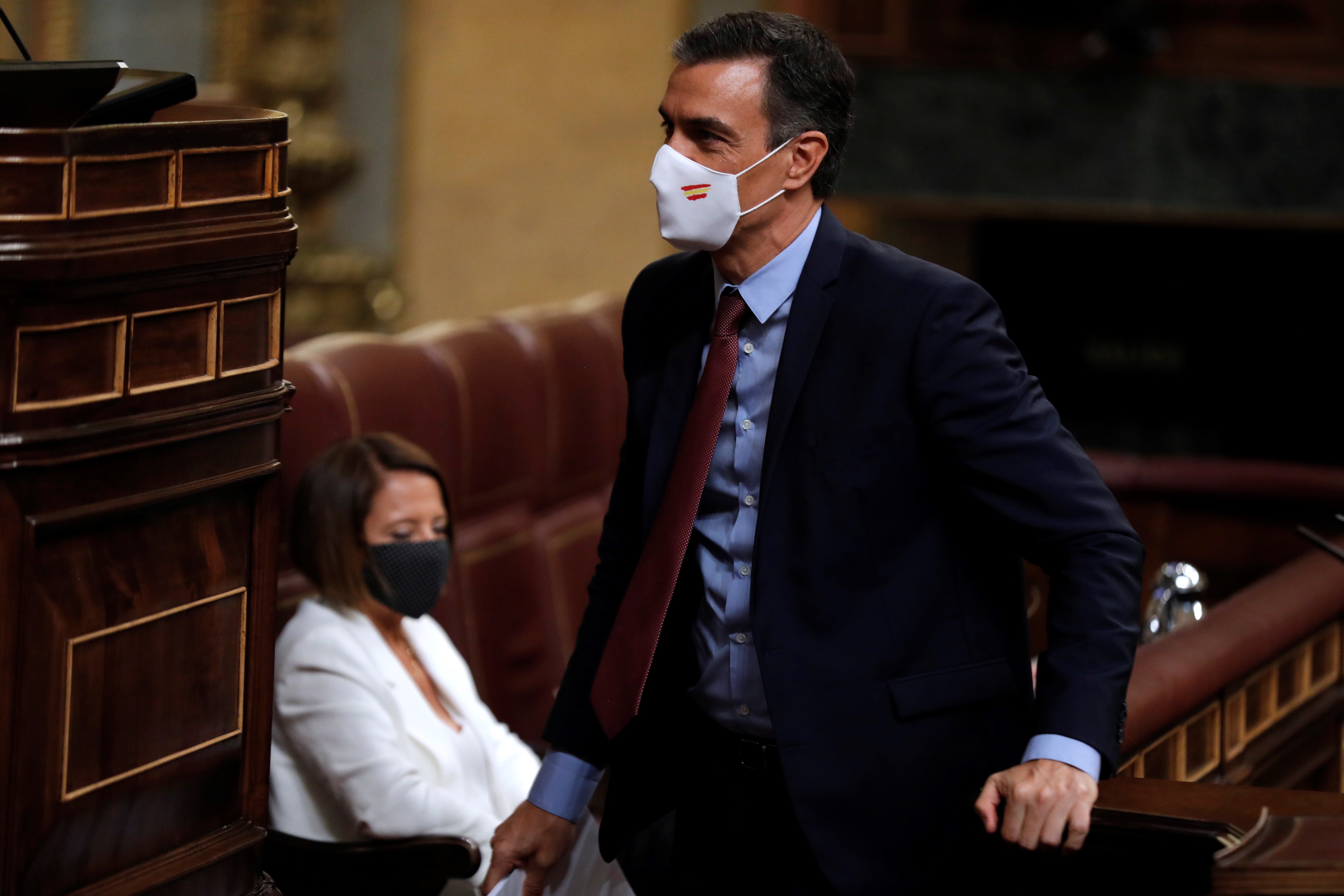In Catalonia there is a "political conflict" and it must be resolved "politically". But the political prisoners are not part of that equation. This is the message conveyed by Spanish prime minister Pedro Sánchez the day after justice overturned the open prison regime that the pro-independence leaders had just begun to enjoy. The Spanish leader affirmed that his government has nothing to do with court decisions, nor with the public prosecutors. Meanwhile, he repeated several times that his commitment to dialogue between the Spanish and Catalan governments is "firm" and that it is up to Catalan president Torra to "set a date" for the return to talks. However, he put his own definition on all the terms: "The framework is that of the current legality, the path is dialogue and the goal is re-encounter." During this Wednesday's debate in the Spanish Congress, the pro-independence parties reprimanded Sánchez for the public prosecutors' actions: yesterday Jordi Cuixart, Jordi Sànchez, Raül Romeva, Oriol Junqueras, and Joaquim Forn had to return to Lledoners.
The issue was heated and the Socialist leader was not able to sidestep it. But his characterization was in terms far removed from those of deputy PM and Podemos leader Pablo Iglesias, who lamented that the judicial setback was “bad news” for dialogue. Today in Congress, Sánchez began with the criticisms that recalled his past insinuation that public prosecutors could be made to follow the government line. "I didn't say that on my best day," he replied to JxCat's Laura Borràs. He reminded her that he had subsequently admitted his mistake and asserted the autonomy of the public attorneys. But beyond that, he completely left the issue of the political prisoners to one side, given that in Spain "there is a division of powers" and "the judiciary is independent."
"They are criticizing a decision made by an independent power, in the seat of another independent power, but they are addressing it to the wrong one," said the Spanish prime minister. "The Spanish government does not impose or remove sentences, but rather the courts do, fortunately," he said. He said that, unlike the portrait of the Spanish state painted by the independence movement, "it is a social and democratic state under the rule of law" and that it is among "the 20 most rigorous democracies in the world."
In response to Jaume Asens, of Podemos ally En Comú Podem, who also criticized the court decision, he restated his "firm commitment" to dialogue, because "there is a political conflict and it must be resolved politically." For the Spanish PM, there should be "no doubt" about his will to resolve the conflict. He insinuated that the problem in resuming dialogue is not located on the Spanish executive's side, and nor is it in the "minority partner" of the Catalan government (ERC), but rather it was centred in the "majority partner" in Catalonia (JxCat). Consequently, he urged Catalan president Quim Torra to "set a date" when "the Catalan executive wants to meet with the Spanish government."
On the other hand, he adopted a much harsher tone with the independence movement. ERC's Gabriel Rufián, who had focused on the Sánchez government's flirting with the anti-independence Ciudadanos party, was taken to task: "You say I can't make a deal with the right, but you do so with the Catalan pro-independence right?" He warned that "if we follow this logic, we will end up agreeing with those who criticise the Spanish government for entering into agreements with you."
With Laura Borràs, he even turned the screw a little tighter, comparing Quim Torra with the Madrid regional president Isabel Díaz Ayuso. "Despite what they think, they have a lot in common. There is only one difference: the flag that hangs from their health centres. The rest is the same: privatization, privatization and privatization", assured the Spanish prime minister. However, he reiterated that there was fluid communication with the Catalan health authorities and guaranteed that "the Catalan leadership can count on the government of Spain" to deal with Covid-19 outbreaks.
Sánchez puffs his chest
They arrived in very adverse conditions, but ended up claiming victory. This is the story that Pedro Sánchez is spinning around the European recovery fund. It is so ambitious, said the PM once again, that it is a "new Marshall Plan" and spoke "with humility" on the "decisive" role that Spain played in overcoming the reluctance of the so-called frugal countries, led by the Netherlands. He assured that they have reached an agreement quickly and without renouncing their red lines: the size, and the classification of the transfers as sunk costs. He has took advantage of his European tour to approach "opposing positions". The Spanish prime minister demanded that the same understanding be applied in Spain.

